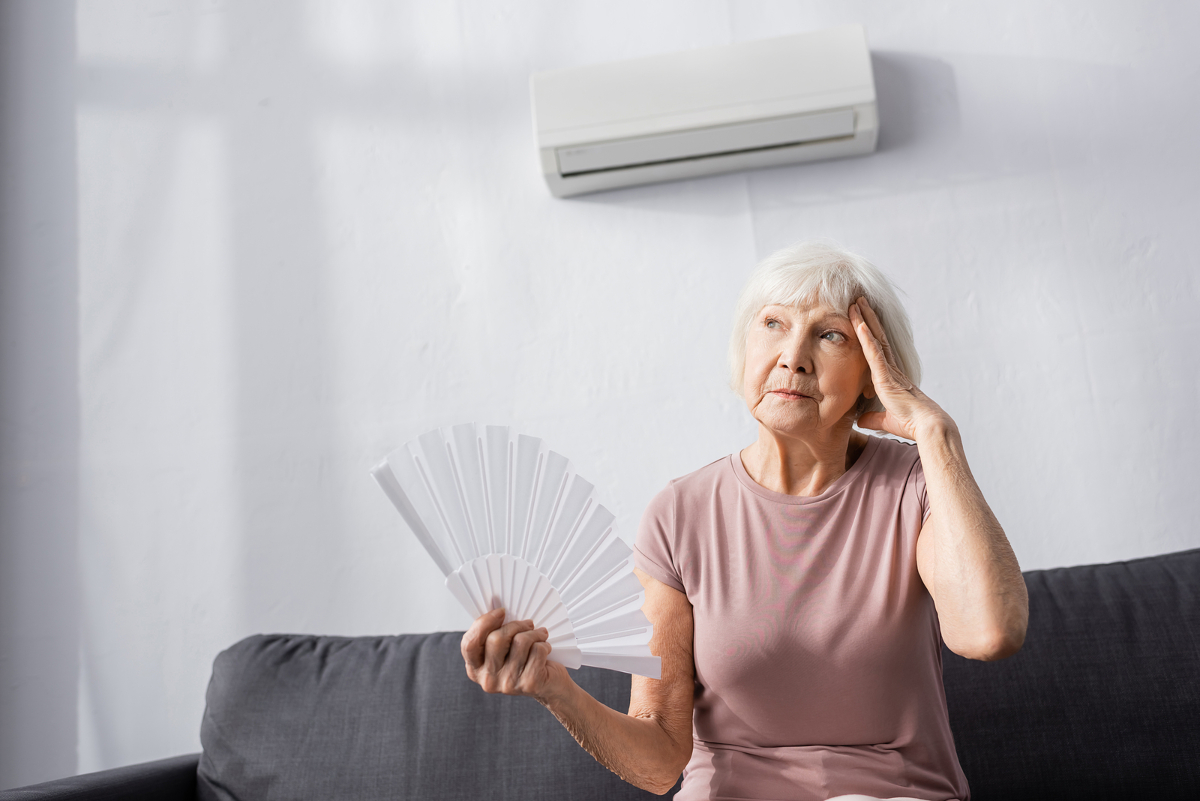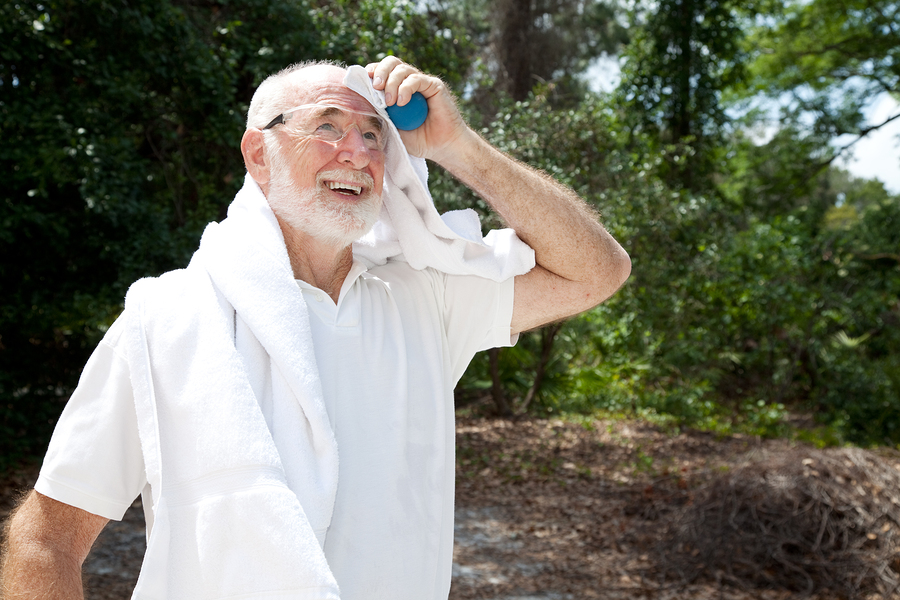4 Things Seniors Need To Know About Heat Stroke

The heat can cause several different types of illness. Heat stroke is the most serious heat related illness. Every year more than 700 people die of heat stroke. And extreme heat sense more than 65,000 people to the hospital. Seniors have a higher risk than other groups of having heat stroke. That’s because it’s harder for seniors to regulate their body temperature. When seniors can’t cool themselves down on a hot day, their body temperature can rise to a dangerous level very quickly.
It’s important for seniors to stay as cool as possible when it’s very warm outside. With senior home care, seniors don’t have to push themselves physically in the heat to do things like household chores or shopping. Some of the most important things for seniors to know about heat stroke are:
The Symptoms
Seniors and their caregivers or family members need to know the symptoms of heat stroke. Always administer first aid and call for emergency help if there’s a possibility of heat stroke. Heat stroke can be fatal so getting help fast is important. The symptoms of heat stroke include:
- Headache
- Nausea
- Dizziness
- Weakness
- Irritability
- Thirst
- Heavy sweating
- Elevated body temperature
- Decreased urine output
- What To Do If Seniors Possibly Have Heat Stroke
Seniors who think that they are having heat stroke or caregivers who suspect a senior might have heat stroke should immediately call 911. While waiting for EMS seniors should:
- Apply cold packs to pulse points like the inner wrist and the back of the neck.
- Remove unnecessary clothing like shoes and socks.
- Use fans to circulate air and dry sweat.
- Sit in the shade or in a cool place.
- Take small sips of cool water or eat ice chips
How To Avoid Heat Stroke
The best way for seniors to avoid heat stroke is to stay indoors where there is air conditioning on hot days. It’s also important for seniors to stay indoors in air conditioning during the hottest part of the day. Other things seniors can do to avoid heat stroke are:
- Dress for the weather
- Reduce activity outdoors, workout indoors in the air conditioning
- Drink cool water before, during, and after being outdoors
- Rest during the hottest part of the day
- Use ice packs or cold compresses to maintain a cooler body temperature
Beware of Rhabdomyolysis
Rhabdomyolysis is a condition that can be caused by extreme exertion in the heat. It’s related to heat stroke, and it can be fatal. During Rhabdomyolysis the body starts to break down its own muscle tissue. It can put significant pressure on the kidneys and may even cause kidney failure. To avoid this seniors should never exercise strenuously in the heat. Seniors who are experiencing any of these symptoms along with symptoms of heat stroke should ask to be checked for rhabdomyolysis when they get treatment for heat stroke:
- Muscle cramps/pain
- Abnormally dark (tea or cola-colored) urine
- Weakness
- Exercise intolerance
Sources: https://www.cdc.gov/niosh/topics/heatstress/heatrelillness.html
https://www.mayoclinic.org/diseases-conditions/heat-stroke/symptoms-causes/syc-20353581
https://www.cdc.gov/disasters/extremeheat/warning.html
https://www.cdc.gov/aging/emergency-preparedness/older-adults-extreme-heat/index.html
Subscribe
Date: August 8, 2023

